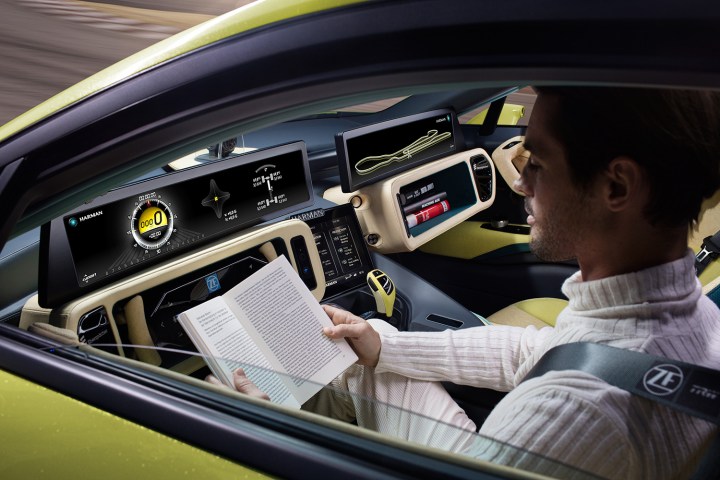
Alexander Roepers of Atlantic Investment Management told the Journal Wednesday that his firm, which holds a 2.3 percent stake in Harman, will vote against the deal. According to Roepers, the Stamford-based company is “worth a lot more.” While 2.3 percent may not be enough to derail the deal completely, it could help Harman get a few more bucks.
Roepers also noted that he was “dismayed” that Harman neglected to search for another bidder after Samsung made its initial offer (though in December, it was revealed that at one point, another company did want Harman, and offered an all-stock deal for the company). That deal, however, clearly never came to fruition.
All the same, it doesn’t look as though Samsung’s position has changed.
“The vehicle of tomorrow will be transformed by smart technology and connectivity in the same way that simple feature phones have become sophisticated smart devices,” Young Sohn, chief strategy officer of Samsung Electronics, said in a November press release. Samsung hopes to use Harman’s status as a Tier 1 automotive supplier to take advantage of this trend.
In its announcement of the takeover, Samsung noted that 65 percent of Harman’s sales in the last year were automotive related. The company, which sprang from audio brand Harman Kardon, was founded in 1953, and now deals primarily with audio systems and technologies related to connectivity. It already has existing relationships with several automakers, and employs 8,000 software designers and engineers, Samsung said.
Harman has developed increasingly elaborate connected car systems. At CES 2016, it debuted a system that tracks a driver’s pupil dilation to measure fatigue, as well as a scaleable connected car platform called Life-Enhancing Intelligent Vehicle Solution (LIVS) that incorporated features like 3D navigation and personalization options for entertainment.
The company also controls several audio brands, including the original Harman Kardon brand, JBL, Mark Levinson Audio Systems, Infinity, AKG Acoustics, Lexicon, and Revel. In addition, it licenses the Bowers & Wilkins and Bang & Olufsen brand names for automotive use. Most recently, Harman made a deal with Ford to supply audio systems under the Bang & Olufsen-derived B&O Play brand as premium options in the automaker’s cars.
The acquisition of Harman is the latest attempt by Samsung to gain a foothold in the automotive industry. The company’s Samsung SDI battery division already supplies batteries to multiple carmakers and will be one of two battery suppliers for Audi’s upcoming electric SUV. Earlier in 2016, Samsung paid $450 million for a 1.92-percent stake in Chinese automaker BYD, which also counts Warren Buffett among its investors.
Article originally published on 11-14-2016. Updated on 12-17-2016 by Lulu Chang: Added Wall Street Journal report that Samsung’s $8 billion deal may not be sweet enough.


